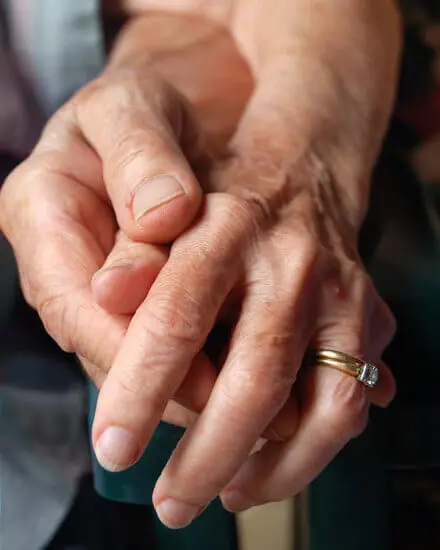My Spouse Needs a Nursing Home. What Will That Mean for Me?

The rules for Medicaid are complex, but they are complex for a reason. Medicaid works to prevent the healthy spouse (the “community spouse”) from being pushed into poverty by the costs of assisted living, nursing, or care at home for his or her ailing spouse who can apply for Medicaid (the “applicant spouse”). In New Jersey, the Department of Aging Waiver Program will pay for an in-home nurse when nursing home care would otherwise be required.
When it becomes clear that long-term care is necessary, Medicaid may be able to help ease the financial burden. The first step is the assessment of the resources (“countable assets”) available to a couple. For Medicaid, “countable assets” has a very specific meaning and categories of included and excluded assets.1
The community spouse can keep 50% of the reported countable assets up to $128,640 (the maximum right now). The other 50% of the assets need to be spent down before the spouse to enter care qualifies for Medicaid benefits.
There are a few options for spending excess resources. First and most straightforwardly, you can pay for care at a monthly rate of about $12,000 (on average) until the assets are gone. Once the assets are spent on care, the spouse in the nursing home will qualify for Medicaid benefits.
Second, if the income of the community spouse is not enough to pay for monthly housing expenses, there is a certain kind of annuity available to protect much of, and sometimes all, of the excess assets. If all requirements are met, the applicant’s spouse may immediately qualify for Medicaid. Excess resources can then be used to benefit either spouse, including home improvements, irrevocable burial accounts, furniture, a car, or others. Once those excess resources have been used (“spent down”), the applicant spouse will qualify for Medicaid benefits.
Third, you can still engage in estate planning to remove property from the “countable assets” consideration or to simply give it away. However, if assets are given away within the past five years looking back from the Medicaid application, then there will be a period of Medicaid ineligibility (or a penalty). For every $10,458.77 given away in that five-year look-back period, there will be one month of ineligibility for Medicaid benefits.
Medicaid can and does allow for a spouse to protect her assets when her spouse needs long-term, expensive care. However, a mistake in planning can lead to a long penalty period or an outright rejection. An experienced elder law lawyer in New Jersey can provide you with sound advice on how to protect assets from the growing costs of long-term care. Contact our office at (609) 580-1044 to schedule your consultation.
1 As a rule of thumb, for an asset to be “countable” for Medicaid it must be available for use in paying long-term care costs. This could be accounts holding cash such as checking or savings accounts; investments that are easily liquidated like bonds and stocks; real estate not used as a main residence; or life insurance policies with cash values. Some assets are specifically excluded, including your main residence, personal property, irrevocable burial accounts, and term life insurance.

